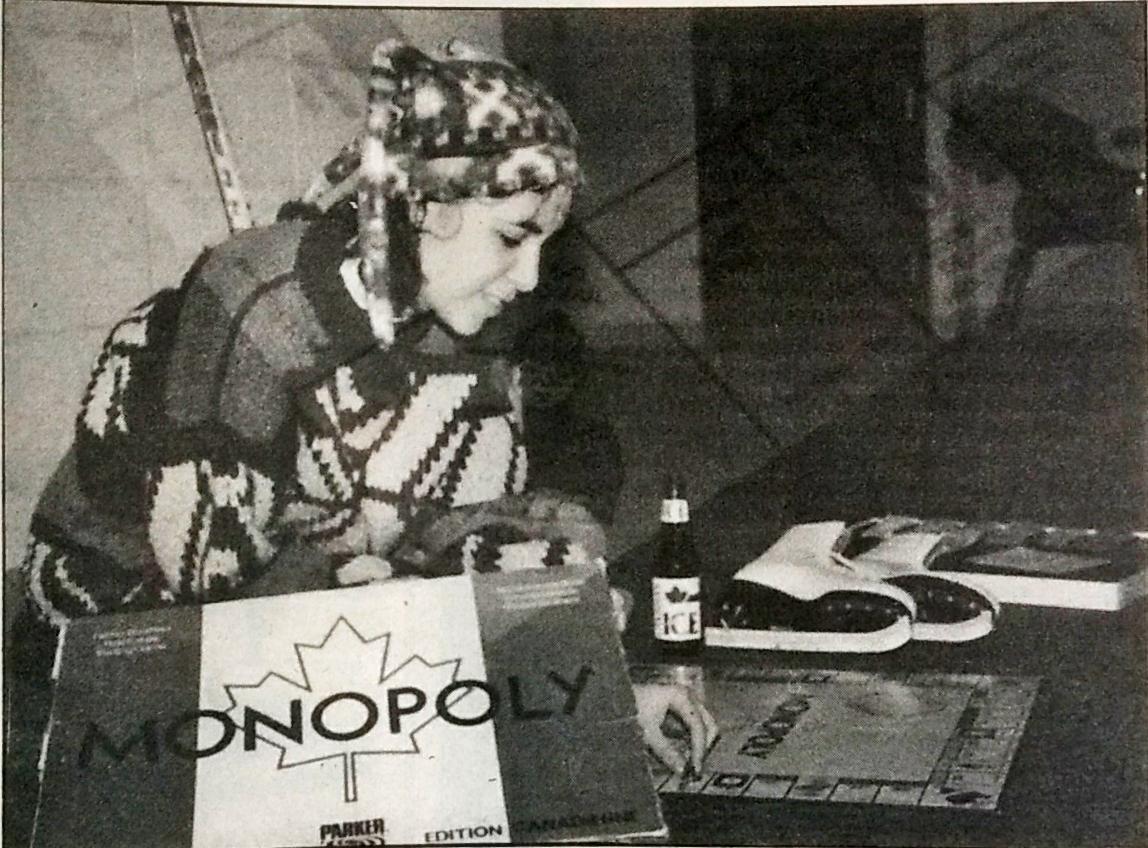By Mary Sanchez
“Does it snow all year round?”
“Are there a lot of igloos up there in Canada?”
These are some of the questions Canadians hear from Americans. At one point I would have asked similar questions.
I remember when my dad told us we were moving to Canada. It was March of 1990. I was 13, my older sister and I had just returned from gymnastics. My dad wanted to talk to us. “What do you think about Canada?” he asked.
The truth is, we didn’t think about Canada. We lived in a suburb in south Florida at the time, why would we know anything about Canada?
When my dad told us, we were devastated.
I was in grade seven, and the only thing I knew about Canada was from a girl in my class. She was a Native so I just assumed that everyone in Canada was as well. It wasn’t until our move that I realized I was wrong.
My first observation was the vast amount of open space. I wasn’t much used to so much “country.”
Everyone was so polite — saying “pardon me?” instead of “what?” like most Americans.
The first day in our new house in Port Perry (an hour north-east of Toronto), my parents went grocery shopping. They returned and showed us all the neat things they bought. We were amazed by the French written on every product. We had never seen anything like that before. Milk came in bags and the pop cans were a lot smaller. Everything seemed so different.
Canadian money was so colourful and weird looking. Rob Del Ciancio, a first-year new media student from Leamington (outside of Windsor) says that Americans who live just outside of the Detroit area always make fun of Canadian money. “They think Canadians can’t tell the difference between money so they have different colours. They call it Monopoly money.”
The loonie caused about the same amount of confusion.
Once my neighbour gave me a loonie to buy a chocolate bar. “What’s a loonie?” I had never seen or heard of one before. It seemed impossible that one coin could buy a chocolate bar.
Another difference — the accents. When I lived in Florida I used to watch a show called You can’t do that on Television. I remember asking why the actors, who looked like Americans, talked so strangely. It wasn’t until I moved here that I learned it was a Canadian show.
The Canadian accent is distinct, especially noticeable on certain words like “out” and “sorry.” The dialogue also consists of the over-use of the word “eh,” strange, since I never even knew it was a word until I moved here. It was also weird to realize that here, I was the one with the accent. My new Canadian friends would make fun of me. They would get me to say, “Get out! There’s a mouse in the outhouse.” They really got a kick out of it.
When I would return to Florida in the summer, my friends would tease me because I was starting to pick up the Canadian accent. I was using polite Canadianisms like “I’ll phone you later” or “Would you like some pop?” The American version would be “Call you later” or “soda?”
With time, these differences lost their prominence. Having lived in both countries, the USA for 13 years and Canada for 6-and-a-half years, I can honestly say that the two countries aren’t much different. But what is apparent are the stereotypes that the citizens of each country hold about each other.
My family and I go back to Florida every summer to visit friends and relatives. Last summer, we went out on my cousin’s boat and met up with a couple in his boating club. When they found out that we lived in Canada they asked some ignorant questions. It was the end of July and they asked us if there was going to be snow in Canada when we got back.
Del Ciancio has had similar experiences with people from Michigan. “Even though they’re that close to the border, they think we live in igloos. They think we walk to the corner store in snowshoes.”
Emily MacInnes, a first-year fashion student, is Canadian but lived in Chicago for two years in high school. She agrees that many Americans are ignorant about Canadians. “I told them I could take snow shoeing in gym class. I told them I was going downhill skiing in June and they believed me. They think as soon as you cross the border there is going to be snow. And they think we’re immune to cold.”
Some Canadians think the same thing about Americans. When I first moved here people thought that I was desensitized to heat. I would stand near a fan on a hot day and would get asked, “Why are you hot? You should be used to the heat because you’re from Florida.”
MacInnes said when she moved back to Orangeville, Ontario, Canadians held stereotypes about her because they thought she was American, assuming automatically she was cocky.
I’ve been given the same stereotype when people find out I am a Yankee, even though I am from the south. Yankees are Americans from the north, but for some reason, Canadians think all Americans are Yankees. I’m not really sure why we stereotype one another. Maybe because we’re so alike and we don’t want to be, so we pick out little, insignificant differences and exaggerate them.
Canadians are viewed as being polite and passive. We play hockey and drink beer. Bob and Doug Mackenzie, eh? Americans are thought to be arrogant, obnoxious, patriotic and violent. They watch baseball and drink really shitty beer.
Del Ciancio says some of his friends think when they go over to the States they are going to get mugged. “The second they get over the border, they lock the car door because, of course, they’re gonna get car jacked. And they hate Americans.” I’ve run into a lot of Canadians who are anti-American. Why?
The answer may date as far back as the War of 1812, when the U.S. tried to take Canada away from Britain. Even though history books say there was no winner, Americans claim that they won but Canadians know they did. Another, more modern answer is Canadians recognize how Americanized they are becoming and they are afraid of losing their identity.
I sometimes wonder if I still lived in Coral Springs, Florida, if I would be one of the “ignorant Americans” that Canadians complain about. Would I ask Canadians if they lived in an igloo? I probably would. That’s just the way it is. And I really don’t think it’s going to change anytime soon.











Leave a Reply